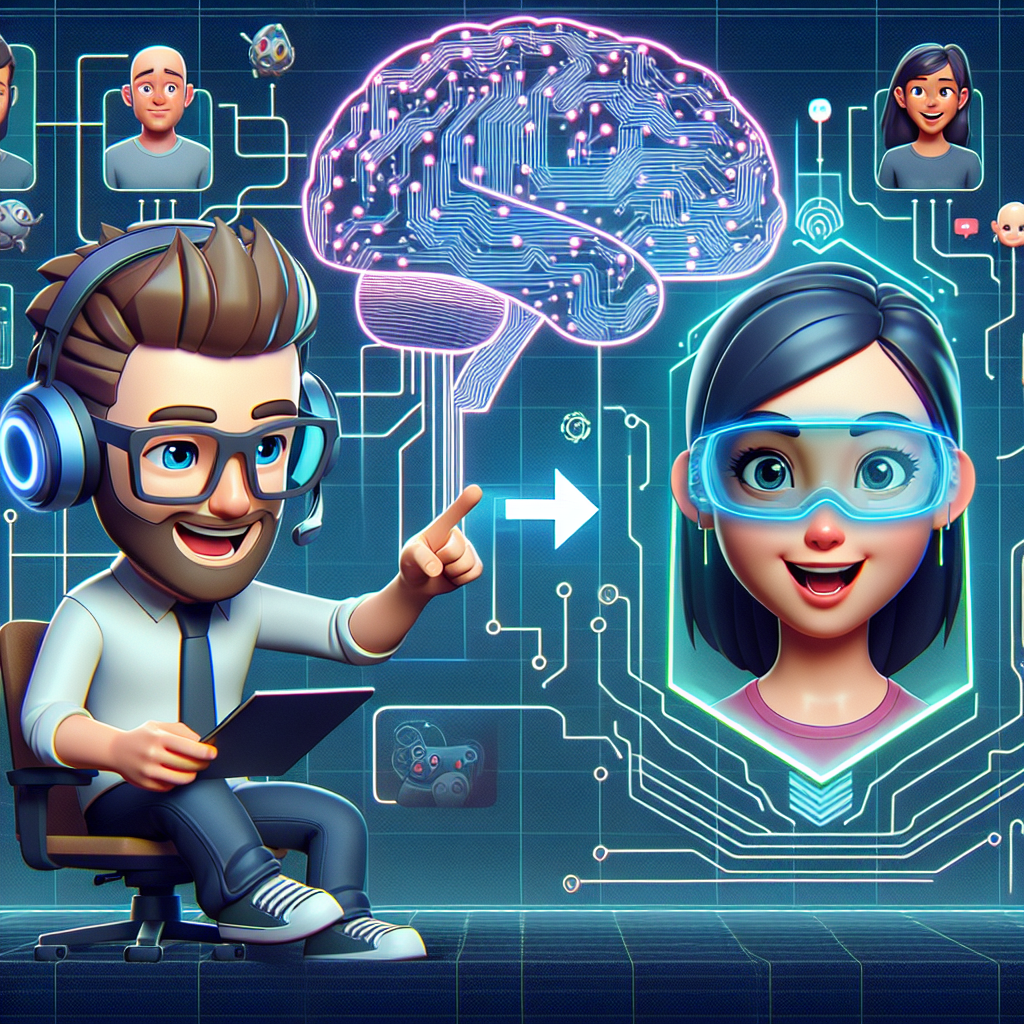Artificial Intelligence (AI) has revolutionized the gaming industry in many ways, from enhancing graphics to improving gameplay mechanics. One area where AI has made a significant impact is in-game conversations and interactions. AI algorithms have been developed to create more realistic and dynamic conversations between players and non-player characters (NPCs), leading to a more immersive gaming experience. This article will explore how AI has enhanced in-game conversations and interactions, as well as the challenges and potential future developments in this field.
One of the key ways AI has improved in-game conversations is through natural language processing (NLP) algorithms. These algorithms analyze the player’s input and generate appropriate responses from NPCs in real-time. This allows for more fluid and dynamic conversations, with NPCs responding to the player’s questions and actions in a more realistic and nuanced way.
For example, in a role-playing game, the player may ask an NPC for information about a quest. With AI-powered NLP algorithms, the NPC can provide a detailed response based on the player’s specific query, rather than relying on pre-scripted dialogue options. This creates a more personalized and engaging experience for the player, as they feel more connected to the game world and its inhabitants.
In addition to NLP algorithms, AI has also been used to create more realistic behavior for NPCs during conversations. AI-driven character behavior models can simulate emotions, personalities, and social cues, allowing NPCs to react to the player’s words and actions in a more lifelike manner.
For example, an NPC may become more agitated if the player is aggressive or disrespectful during a conversation, or more cooperative if the player is friendly and helpful. This adds depth and complexity to in-game interactions, making them more engaging and immersive for the player.
Another way AI has enhanced in-game conversations is through the use of machine learning algorithms. These algorithms can analyze vast amounts of dialogue data to generate more varied and contextually appropriate responses from NPCs. This helps to prevent conversations from becoming repetitive or predictable, keeping players engaged and invested in the game world.
For example, in a social simulation game, NPCs may develop unique personalities and speech patterns based on the player’s interactions with them. This creates a sense of continuity and progression in the game world, as NPCs evolve and grow based on the player’s influence.
Overall, AI has greatly enhanced in-game conversations and interactions by creating more realistic and dynamic dialogue options, simulating emotions and social cues, and generating varied and contextually appropriate responses from NPCs. This has led to a more immersive and engaging gaming experience, with players feeling more connected to the game world and its inhabitants.
However, there are still challenges and limitations to be addressed in this field. One major challenge is the ethical implications of AI-powered conversations in games. As AI algorithms become more sophisticated, there is a risk of NPCs becoming indistinguishable from real humans, leading to potential issues around consent, privacy, and emotional manipulation.
Another challenge is the potential for bias and discrimination in AI-generated dialogue. If AI algorithms are trained on biased or limited data sets, they may inadvertently perpetuate harmful stereotypes or discriminatory behaviors in in-game conversations. Developers must be vigilant in monitoring and mitigating these risks to ensure a safe and inclusive gaming experience for all players.
In terms of future developments, there is great potential for AI to continue enhancing in-game conversations and interactions. As AI algorithms become more advanced, we can expect to see even more realistic and nuanced dialogue options, with NPCs responding to the player’s emotions, motivations, and intentions in a more sophisticated way.
There is also potential for AI to be used in multiplayer games to enhance communication and teamwork between players. AI-powered chatbots could help facilitate communication between team members, provide strategic advice, or even act as virtual companions for solo players. This could lead to more collaborative and dynamic gaming experiences, with players forming deeper connections with each other and the game world.
In conclusion, AI has greatly enhanced in-game conversations and interactions by creating more realistic and dynamic dialogue options, simulating emotions and social cues, and generating varied and contextually appropriate responses from NPCs. While there are challenges and limitations to be addressed, the future of AI in gaming looks bright, with great potential for further advancements and innovations in this field.
FAQs:
Q: How does AI improve in-game conversations?
A: AI improves in-game conversations by using natural language processing algorithms to generate more realistic and dynamic dialogue options, simulating emotions and social cues, and generating varied and contextually appropriate responses from NPCs.
Q: What are the challenges of AI-powered conversations in games?
A: The challenges of AI-powered conversations in games include ethical implications around consent, privacy, and emotional manipulation, as well as the potential for bias and discrimination in AI-generated dialogue.
Q: What is the future of AI in gaming?
A: The future of AI in gaming looks bright, with potential for even more realistic and nuanced dialogue options, multiplayer communication enhancements, and collaborative gaming experiences.
Q: How can developers mitigate the risks of bias and discrimination in AI-generated dialogue?
A: Developers can mitigate the risks of bias and discrimination in AI-generated dialogue by monitoring and mitigating potential biases in training data sets, and implementing safeguards to ensure a safe and inclusive gaming experience for all players.

